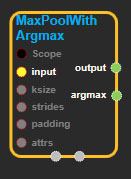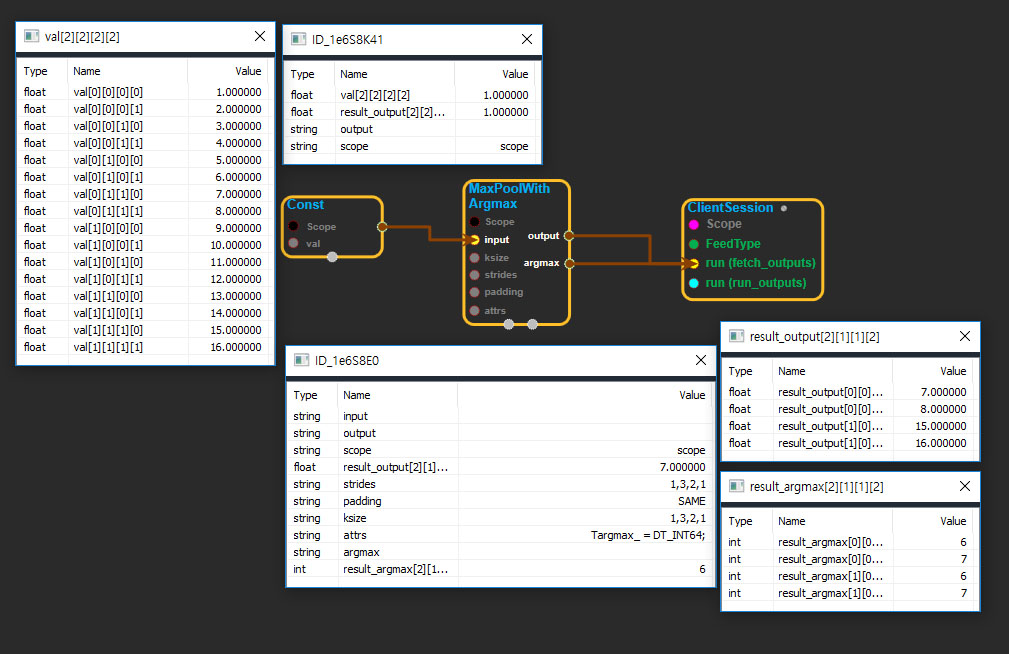MaxPoolWithArgmax
tensorflow C++ API
tensorflow::ops::MaxPoolWithArgmax
Performs max pooling on the input and outputs both max values and indices.
Summary
The indices inargmaxare flattened, so that a maximum value at position[b, y, x, c]becomes flattened index((b * height + y) * width + x) * channels + c.
The indices returned are always in[0, height) x [0, width)before flattening, even if padding is involved and the mathematically correct answer is outside (either negative or too large). This is a bug, but fixing it is difficult to do in a safe backwards compatible way, especially due to flattening.
Arguments:
- scope: A Scope object
- input: 4-D with shape
[batch, height, width, channels].Input to pool over. - ksize: The size of the window for each dimension of the input tensor.
- strides: The stride of the sliding window for each dimension of the input tensor.
- padding: The type of padding algorithm to use.
Returns:
Outputoutput: The max pooled output tensor.Outputargmax: 4-D. The flattened indices of the max values chosen for each output.
MaxPoolWithArgmax block
Source link : https://github.com/EXPNUNI/enuSpaceTensorflow/blob/master/enuSpaceTensorflow/tf_nn.cpp

Argument:
- Scope scope : A Scope object (A scope is generated automatically each page. A scope is not connected.)
- Input input: connect Input node.
- ArraySlice< int> ksize: input ksize in values. ex)1,2,2,2,1
- ArraySlice< int> strides: input ksize in values. ex)1,4,3,2,1
- stringpiece padding: input padding in value. ex)SAME
Return:
- Output output: Output object of MaxPoolWithArgmax class object.
- Output argmax: Output object of MaxPoolWithArgmax class object.
Result:
- std::vector(Tensor) result_output : Returned object of executed result by calling session.
- std::vector(Tensor) result_argmax : Returned object of executed result by calling session.
Using Method
